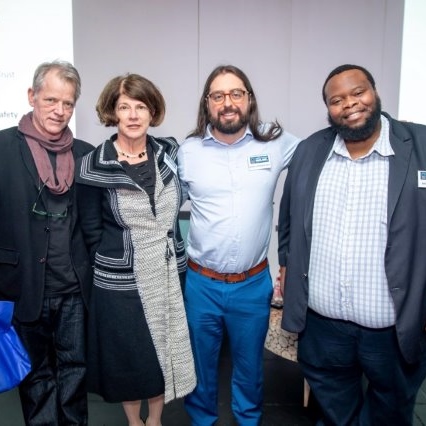SA
Line between free speech and hate speech
Freedom of speech is crossing the line into hate speech to demonise Israel. This was the subject of a plenary session titled, “Swimming against the anti-Israel tide” at the South African Zionist Federation Cape conference on Sunday.

MOIRA SCHNEIDER
Advocate Mark Oppenheimer said that freedom of speech meant that we sometimes had to tolerate speech we disliked, including that of a hateful, racist, and anti-Semitic nature, while listing three distinct limitations on this right in the Constitution. “Hateful speech – as opposed to hate speech – is offensive, but it is protected,” he stressed.
Oppenheimer said that litigation should be resorted to under the right conditions. “Choose your cases – be sure you’re going to win. We need to walk with an olive branch in the one hand, and a big stick in the other.”
Addressing the topic of free speech in a complex and varied media environment, veteran journalist Michael Morris, the head of media at the South African Institute of Race Relations, said many journalists were reluctant to question or challenge the basic assumption of ANC rule, namely racial nationalism and the preservation of race as a means of re-ordering society.
“From this wells an unquestioning endorsement of everything the ruling party stands for. The effect is that dominant ideas enjoy tacit approval, and are made to appear commonsensical and morally sound. Meanwhile, critics are often the subject of suspicion, and are made to seem reactionary, undesirable, and morally questionable.
“There is a desire among many journalists to be seen to be choosing the ‘right’ side,” Morris said, pointing out that the implications for free speech were “considerable, but subtle”, with the tacit approval of the dominant frame of reference remaining pervasive.
It had the effect of narrowing rather than expanding the reach of free speech. “In this way, free expression will be approved so long as it advances dominant thinking – but will often be denied when it comes to a countervailing opinion.”
It demonstrated a “lapse of principle”, Morris said, “given that free speech is the foundation of democracy”.
The phenomenon was not restricted to journalism, he said, referring to the youth plenary that had taken place earlier. “In particular, Aaron Sher’s call for tolerance of what he called ‘deviance’ (or deviation from accepted thinking) in the Jewish community. That’s what freedom means.”
Morris said it was a mistake to see the media as a bloc, or even media groups as functioning in defined ways, or conspiring to advance one or another point of view. “The essential agent is the individual journalist – though obviously we are aware across the media space of the influence of editors or media owners.
On the side of those the media love to cover, Oppenheimer warned against underestimating the power of vocal minorities, referring to the “crazy ideas” being expressed by a party (the Economic Freedom Fighters) with less than 5% of the vote. “Most people in the middle of the road are easily cowed into silence.”
Industrial sociologist Sihle Ngobese said there was a “need to build a generation of people happy to confront bad ideas, and put forward good ideas. You do stand alone,” he said, making reference to the small minority defending Israel during Israel Apartheid Week at the University of Cape Town, “but it boils down to whether you’ve got the ‘chutzpah’ to keep going at it.”
Sara Gon, Policy Fellow at the South African Institute of Race Relations, who facilitated the discussion, spoke about the “journalism of outrage”, particularly in the private media space, with interviewees not being allowed to get a word in edgewise. “I see that as closing down the exercise of freedom of speech.”.
She spoke of people having “a desperate desire to be seen [to be] on the right side”, and so individuals believed it was “not enough to possess intelligent scepticism. The idea of getting at the truth becomes secondary.”
Morris said that “the risk of imminent violence” was key to muzzling free speech. “If it’s a fallacious argument filled with hate, that argument has to be defeated in public. The battle of ideas can be won, [but] not by stopping the debate of ideas.”
Oppenheimer agreed that it was “important to let hatemongers express their views up to a point. There must be a call to do something before we stop them.”